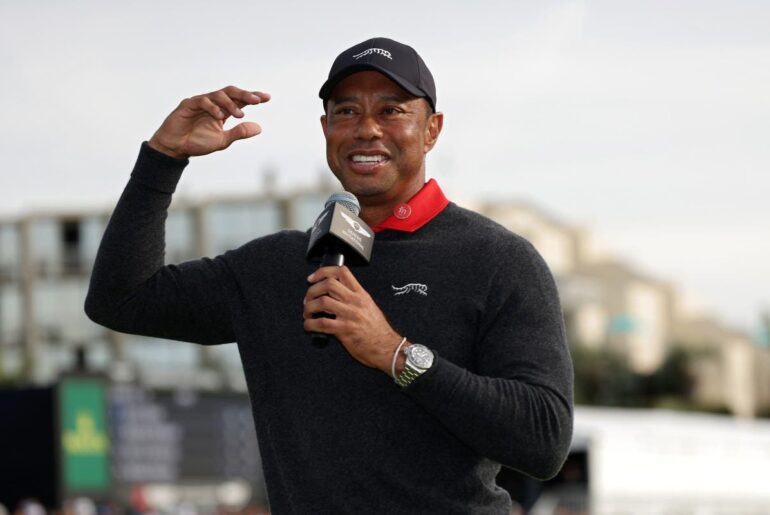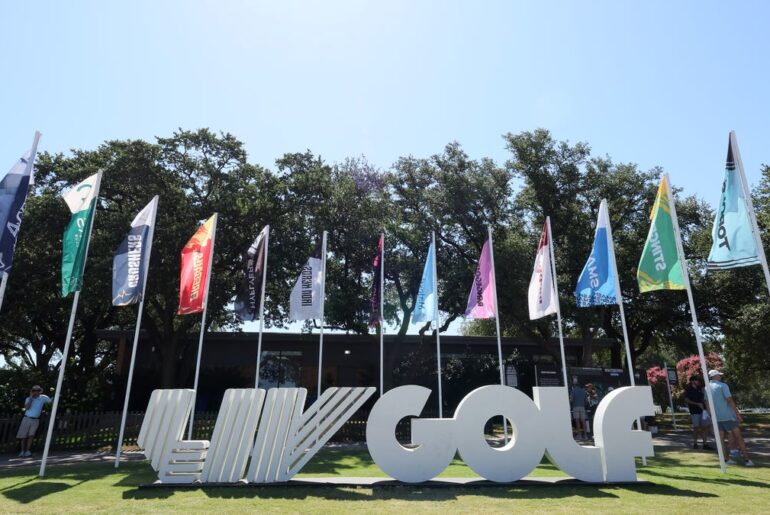 Greg Norman announced last week that he was leaving LIV Golf. Chung Sung-Jun, Getty Images
Greg Norman announced last week that he was leaving LIV Golf. Chung Sung-Jun, Getty Images
Say what you will about Greg Norman – and plenty has been said about him through the years – but he did his job for LIV Golf.
Norman, who announced last week he was leaving LIV Golf after four years as its CEO and, most recently, as an advisor, gave the new league a presence whose personality and business style fit its audacious intention of reshaping professional golf’s landscape.
The pro game remains divided and Norman’s brash style rarely fostered goodwill but, four years into the game’s new paradigm, it seems more clear than ever that finding a compatible compromise was nearly impossible. Therefore, Norman fully departs with LIV Golf still a controversial work in progress.
To do what LIV Golf has done, it needed an aggressive leader who wasn’t afraid to be disruptive. Norman has always been self-assured and LIV Golf needed that to challenge the game’s traditional structure.
There were times when Norman went over the top. His “surely you jest” letter to PGA Tour commissioner Jay Monahan suggesting the tour had no legal standing to ban players who signed with LIV exemplified the antagonistic attitude that made it harder for Norman to sell the public on LIV Golf.
Norman understood that, despite the billions being poured into LIV Golf by Saudi Arabia’s Public Investment Fund, it was easier to buy players than to buy fans, though he has always believed in what he was selling.

LIV Golf continues to struggle to find traction in the United States and it’s possible that it has found its level here. If it has, it has failed.
Any notion that it would rival the PGA Tour has been put to rest and there is a growing sense that the two organizations are content to go their separate ways.
But Norman believed in the global vision and that is the foundation of whatever success LIV Golf has had. For more than 30 years, Norman has advocated for a world tour and LIV Golf helped him realize that goal, though not with the universal support he might have envisioned.
In announcing his departure from LIV – Scott O’Neil replaced Norman as CEO earlier this year – Norman said:
“Together, we built a movement that changed the game globally. We created opportunities for both players and fans and [broadened] the ecosystem of golf. We truly globalized the game and expanded golf’s reach to fans around the world.
“We brought entertainment, innovation and private equity into golf (including to the PGA Tour) positioning the sport as an asset class. It’s been an incredible chapter, and I’m so proud of what we accomplished. My commitment to do what was and still is, the right thing for golf, the players and fans never wavered.”
“We have never gone out there with any narrative or anything that we want to destroy the PGA Tour, the European Tour, but they have come out and said they want to destroy LIV. That’s what has disappointed me the most.” – Greg Norman
Whether professional golf is better can be debated but there is no question LIV Golf’s arrival produced a financial windfall not just for the players who jumped to the new league but to PGA Tour players, particularly those at the top end who now have so many $20-million events that they don’t feel obligated to play all of them.
Since he splashed onto the professional golf scene in the 1980s, Norman has been one of the game’s most fascinating characters. Because of his often-combative approach to promoting LIV Golf, the magnitude of Norman’s playing career has been overshadowed but there is no denying how much he accomplished as a player.
Not unlike how he has operated in business and particularly with LIV, Norman brought a rare style to the game. He was flamboyant – winning or losing – and he sat atop the world ranking for 331 weeks (more than six years), second all-time to Tiger Woods.
 LIV Golf CEO Scott O’Neil Patrick McDermott, Getty Images
LIV Golf CEO Scott O’Neil Patrick McDermott, Getty Images
Norman clashed with the PGA Tour in the 1990s and it felt like he carried his frustration into his time at LIV. Listening to Norman made it seem at times that he wasn’t just selling a new vision of professional golf but was intent on extracting a measure of revenge after the tour rejected his world tour ideas only to create the World Golf Championships.
In an interview over breakfast at Doral three years ago, Norman said, “We have never gone out there with any narrative or anything that we want to destroy the PGA Tour, the European Tour, but they have come out and said they want to destroy LIV. That’s what has disappointed me the most.”
Norman was necessarily aggressive because LIV’s incursion required it. He – and the Saudis’ millions – were persuasive enough to convince Dustin Johnson, Bryson DeChambeau, Brooks Koepka, Jon Rahm and Phil Mickelson, among others, to join the crusade.
Measuring LIV Golf’s success is difficult, however. It has succeeded in creating a new form of professional golf but it has not succeeded in winning over the American public and that seems unlikely to change.
The team format isn’t popular here and no matter how often Joaquin Niemann wins on LIV, it doesn’t compare to what Scottie Scheffler is doing on the PGA Tour and doesn’t resonate in the same way.
Maybe Norman and LIV Golf overestimated what they could be or maybe it’s still too soon to pass a final judgment. If change was the ultimate goal, Norman accomplished that.
Maybe that was enough.
© 2025 Global Golf Post LLC







